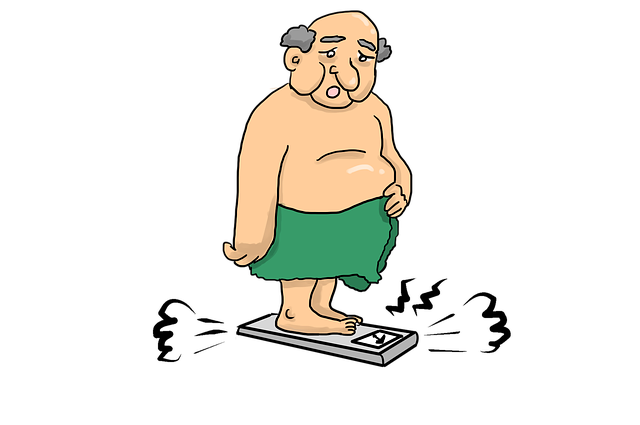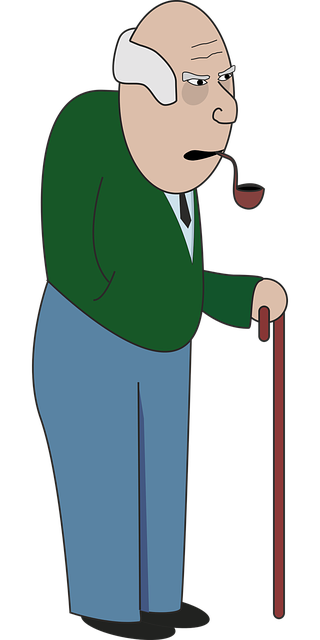
How Aging Affects Elderly Nutrition?. Senior nutrition is vital because older adults are especially vulnerable to malnutrition. And many of the diseases they suffer are direct results of dietary factors. Also, the changes we experience as we age also affect our metabolism. So then, we’ll address all of these changes and explain how proper nutrition for the elderly can help you maintain a healthy weight. In addition, stay energized, and fight off most chronic conditions associated with old age.
Ageing, and the changes in your life that come with age, can affect your nutrition and, in turn, your health in several ways. Some have a direct impact, and others influence seniors’ nutrition indirectly. The changes that can happen in our later years include:
Reduced Energy Requirements
How Aging Affects Elderly Nutrition?. We lose our lean body mass as we age, and our metabolism slows down. As a result, we need to consume fewer calories than we did when we were younger. Moreover, retirees and seniors with mobility issues tend to be less active, which leads to a further loss of muscle mass and a further decline of basal metabolic needs. Therefore, nutrition for older adults has to be adjusted according to age to maintain a healthy weight and prevent obesity.
Decreased Senses and Appetite
How Aging Affects Elderly Nutrition?. The opposite problem—malnourishment—can occur due to a reduced sense of smell and taste. Based on elderly nutrition facts, this is also a change that happens to us when we get older. It can cause a loss of appetite because seniors tend to eat less when they can’t taste their food like they used to. Neglecting elderly nutrition needs can lead to unhealthy weight loss and frailty.
Chronic Medical Conditions
How Aging Affects Elderly Nutrition?. Most older adults have at least one chronic condition and can blame poor eating habits for most of them. In addition, according to the WHO, there is some connection between dietary fat and cancer of the colon, pancreas, and prostate.
Dietary factors can also lead to high blood pressure in the elderly, high blood lipids, glucose intolerance, and other contributing factors for atherosclerosis, a disease of the blood vessels that can lead to a stroke or heart attack. Improper nutrition in the elderly can also cause diabetes and osteoporosis, especially when we don’t meet the daily requirements of certain micronutrients.
Side Effects of Medication
Since most seniors have at least one chronic condition, they sometimes also take multiple medications to treat them. Unfortunately, each can have side effects, and interactions can happen between drugs, not to mention the food you eat.
Some of the most common side effects can include:
- nausea
- reduced appetite
- changes in food taste perception
Therefore, medications can also compromise senior nutrition.
Issues with Oral Health
How Aging Affects Elderly Nutrition?. Other obstacles seniors are more likely to face dental issues such as missing teeth or gum disease, which can cause difficulties with chewing and mouth sores, and jaw pain. That may mean avoiding food. Improperly fitted dentures can cause problems too. All of these issues can interfere with your ability to eat some foods. As a result, seniors are more likely to skip meals and potentially avoid some healthy food choices as part of balanced nutrition for older adults.
Weakened Immune System
How Aging Affects Elderly Nutrition?. Like every other system in our bodies, our immune system is also affected by ageing. It weakens with age, putting you at an increased risk of foodborne illnesses and food poisoning. So this, too, affects nutrition for senior citizens. The elderly should be particularly careful when preparing poultry and dishes containing raw eggs.
Memory Loss and Depression

Alzheimer’s and other types of dementia can cause seniors to forget whether they’ve eaten. Coupled with a reduced appetite, it’s not hard to see how memory loss can compromise the nutrition of the elderly. Furthermore, many unpleasant changes can happen as you grow older, such as losing loved ones. Depression is reasonably related to food and older adults, as it can cause them to become apathetic about their health and avoid eating.
Mobility Issues and Lack of Transportation
Arthritis and various disabilities can cause seniors to have trouble moving, cooking, grocery shopping, and so on. All of this can discourage them from going shopping and cooking. As a result, some may choose unhealthy alternatives or skip meals.
Lack of Finances
Even if you’re well aware of the importance of nutrition in older adults. But you may be living on a fixed income, and your resources can be minimal. So then, this can leave you with no choice but to pick cheaper ingredients. Also, increasing your risk of developing micronutrient deficiencies.
What Is the Healthiest Diet for Seniors?
If you’ve successfully managed to remove the obstacles preventing you from getting your hands on healthy ingredients. So then, the next step would be to know how to balance your diet. A balanced diet should contain proper macronutrients and enough micronutrients to prevent deficiencies. Here’s how to ensure that.
Eat a Diverse Diet of Nutrient-Rich Foods
According to most older adults’ nutrition guidelines. The easiest way to get all the necessary nutrients in your body is to have a highly diversified diet. Also, containing complex and non-refined carbohydrates, lean proteins, low-fat dairy products. And foods low in saturated and high in unsaturated fats. The majority of calories should come from vegetables and fruits, beans and lentils, whole grains, and nuts and seeds. And coupled with reasonable portions of low-fat dairy and lean meats like fish and chicken.
Choose Healthier Snacks
Avoid processed foods as much as possible, as they’re usually high in salt or sugar and unhealthy food additives. Instead, choose natural products such as fruits and nuts as snacks between meals. When you choose the right snacks, try to have them around. Snacking is good for maintaining healthy nutrition in older adults. In addition, having five smaller meals throughout the day instead of three heavy meals is a proven way to speed up your metabolism.
Fiber
The following smart choice for older adults is to eat plenty of fibre. It’s essential for a healthy digestive system. Besides preventing constipation—a common problem in the elderly—fibre is also crucial for maintaining healthy cholesterol levels. The best sources of fibre include fruits and vegetables with the skin whenever possible. Including, beans and lentils, nuts and seeds, oats and oat bran, and whole grains.
Omega-3 Fatty Acids
The primary source of this staple of a healthy diet for the elderly is fish, especially sardines, tuna, mackerel, and salmon. In addition, flaxseed, soybeans, canola oil, and walnuts are also rich in omega-3s. These fatty acids can help prevent inflammation, leading to cancer, rheumatoid arthritis, and heart disease. Moreover, they can slow down macular degeneration, which leads to poor vision and reduces the risk of Alzheimer’s disease. Nutritionists recommend two servings of omega-3 fatty acids a week.
Calcium
Calcium is a mineral essential for bone health. According to elderly nutrition guidelines, people over 50 should consume 1,200 mg of calcium daily. This mineral is vital for women after menopause because they are particularly prone to osteoporosis. However, the elderly may not meet the daily requirements by only getting this nutrient from food. For example, you’d need to drink four cups of fortified orange juice, milk, soy, or almond milk daily to get enough calcium. That’s why sometimes supplements may be required.
Vitamin D
Including vitamin D in your diet is a step into better nutrition. The second most important nutrient in preventing osteoporosis is vitamin D. Unlike most other vitamins, our body can produce it. It does this when the skin is exposed to sunlight. Also, you can find vitamin D in eggs and certain fish.
Maintaining optimal bone health is essential for preventing severe complications in the elderly, especially after more severe events like suffering a fall. Furthermore, there’s evidence that Vitamin D can help protect against chronic conditions such as multiple sclerosis, type 2 diabetes, and some cancers. All of this makes it one of the top nutritional concerns for older adults.
Vitamin C
Vitamin C is an essential antioxidant that helps us:
- recover after infections
- repair bones
- heal wounds
- help with the collagen production that keeps our skin elastic
- help prevent cancer and heart disease
Nutrition in the elderly guidelines proposes that peppers and citruses are the best natural sources of vitamin C.
Vitamin B12
Vitamin B12 helps maintain nerve function and the production of red blood cells and DNA. As you age, this vitamin gets increasingly difficult to absorb from food. While you can find it in dairy products, meat, and poultry, B12 in the form of a nutrition supplement for elderly patients is sometimes necessary.
Iron
Eating iron-rich foods, such as meat, prevents the elderly from becoming frail and feeling tired and lethargic. Iron is a vital part of haemoglobin, a protein found in red blood cells, which carries oxygen throughout our bodies, so it’s a critical part of a balanced diet. Vegetarians and younger women are prone to iron deficiencies, although they aren’t rare in older adults.
Potassium
The advantages of a diet high in potassium—such as bananas, prunes, and potatoes—include reducing blood pressure and lowering your chances of developing kidney stones. It also has a role in strengthening bones, so it’s one of the critical elements of senior nutrition. However, it’s essential to be careful not to ingest more than 4,700 mg of potassium daily because too much of it is dangerous.
Magnesium
Magnesium has a role in over 300 physiological processes in our bodies, and every nutrition program for the elderly recommends it. It helps with keeping your heart, immune system, and bones healthy. However, as you grow older, your body begins to struggle to absorb enough magnesium. This mineral is found in whole grains, nuts, fresh fruit, and vegetables. Since it’s also one of the most common nutritional deficiencies in older adults, physicians often recommend magnesium supplements.
Collagen
Collagen is a fundamental substance for keeping your skin, hair, cartilages, and other connective tissues healthy. Consuming collagen-promoting foods will not only keep you youthful for a longer time but will also help prevent degenerative arthritis from developing in your hips, knees, and other joints. A diet rich in collagen includes bone broth, chicken, beef, eggs, and various veggies, fruits, and nuts.
Water
Last but not least, we must not forget water, one of the six essential nutrients. Neglecting hydration can have severe consequences on senior health. That’s why preventing dehydration is critical.
Importance of a Balanced Nutrition During the Pandemic
During the COVID-19 pandemic, people have focused on the importance of nutrition for older adults, but the issue is still under-addressed. People aged 60 and over, especially those with underlying medical conditions, have the highest risk of being affected by COVID-19.
Healthy food for the elderly plays a central role in healthy ageing. Unfortunately, undernutrition is prevalent in around 52.7% of older hospitalized people with COVID-19. Therefore, doctors advise avoiding underfeeding in hospitals to limit the adverse consequences of malnutrition on patients’ outcomes, which is critical for older patients affected by this virus.
Additionally, nutrition is vital after the recovery of severe diseases, including COVID-19, so people should keep consuming a balanced diet, preferably by following a senior nutrition program, after being discharged from the hospital. As we can see, the person’s nutritional status plays a part in the development of the virus and the ability to fight it.
In Conclusion
Some changes in the home life, health, medicines, income, sense of smell and taste, and problems with chewing or swallowing food can seriously affect elderly nutrition. Luckily, you can do several things to get back to a healthy, balanced diet. Eating foods that give you many nutrients without many extra calories, choosing foods low in cholesterol and fat, avoiding empty calories, drinking enough fluids, and staying physically active are just some of them.
Important Note *
Remember that everyone is different, and it is ultimately YOUR RESPONSIBILITY to find what your body responds to. So please do your due diligence before trying anything new, including getting Medical Advice to ensure your safety and peace of mind.
Connect with me and leave a comment or two on my social media.




2 replies on “How Aging Affects Elderly Nutrition?”
I’d like to hear more
Hi Tom, Nutrition is the fuel that gives us the energy to live and also can be very helpful in our defence against disease, so it is extremely important that we pay attention to our diet. There can be difficult choices for some older adults, with the cooking ability or financial restraints on limited pensions, I always try to give you the best solutions to what is needed, and I am listening to you, I will be putting out more information on nutrition in the near future. Thank you for your comment, I appreciate any feedback and wish you good luck in the future. Ian